CEsA Digital Magazine #1 | Research: The “Cinema and Decolonisation: Mozambique in focus” cycle combines cinema, memories and narratives about decolonisation and its milestones in monthly film clubs at ISEG

The cinema sample is the first project by the CEsA film club, coordinated by researcher Jessica Falconi and curated by directors Isabel Noronha and Camilo de Sousa
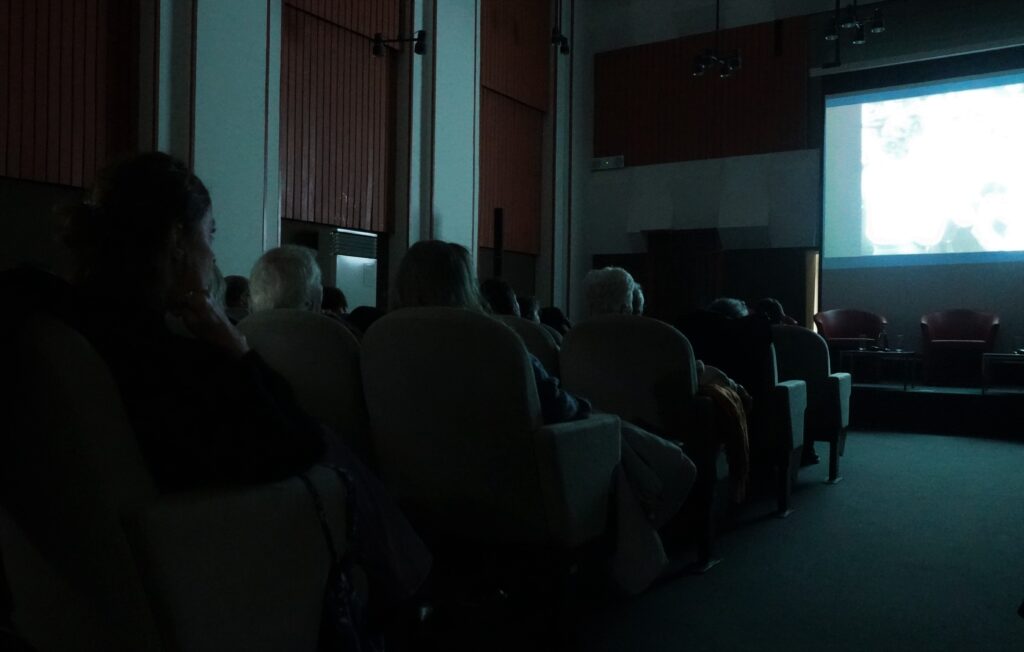
Collecting narratives, impressions, statements and opinions from individuals, groups, families or generations of people who directly or indirectly experienced the process of decolonisation in Mozambique is the driving force behind the “Cinema and Decolonisation: Mozambique in focus” cycle. This is the first film club project by the Centre for African and Development Studies (CEsA/CSG/ISEG/ULisbon). It is shown once a month in Auditorium 2 at ISEG – Lisbon School of Economics and Management.
The film club is coordinated by researcher Jessica Falconi (CEsA/CSG/ISEG/University of Lisbon) with scientific consultancy provided by researchers Joana Pereira Leite (CEsA/CSG/ISEG/University of Lisbon) and Ana Mafalda Leite (CEsA/CSG/ISEG/ULisbon). The curatorship is in the hands of researcher, director and psychotherapist Isabel Noronha, who came up with the original project idea, and filmmaker Camilo de Sousa. The films chosen for 2023 deal with the legacy and memories of decolonisation in Mozambique and each showing is followed by discussions with the artists involved in producing the work and researchers.
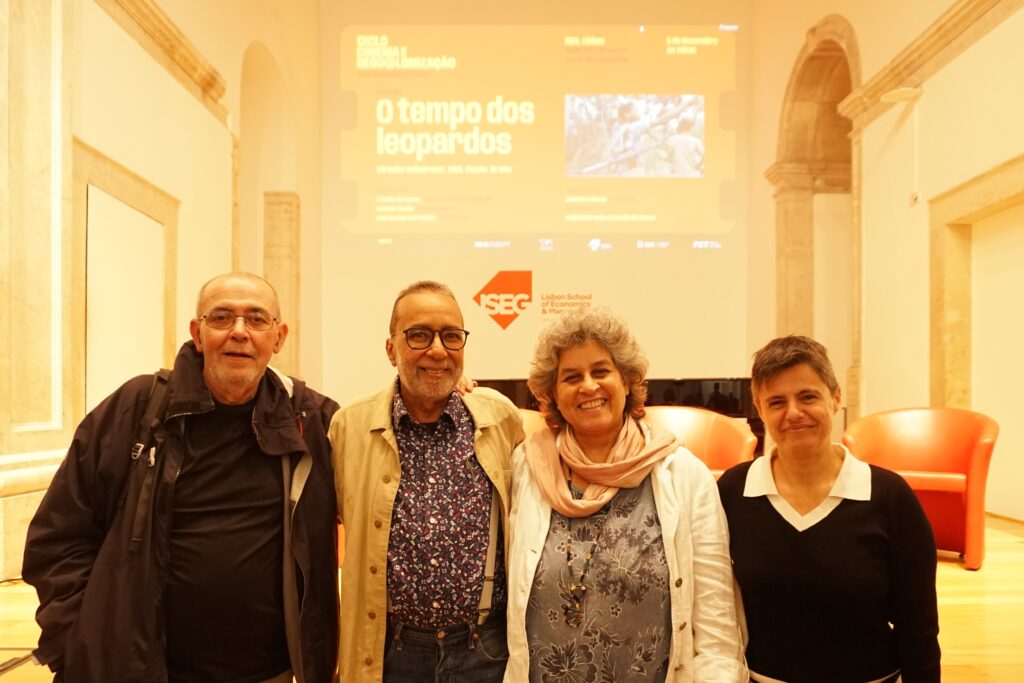
The opening session was held on 5 November 2022, when the first Mozambican film made after independence, “O tempo dos leopardos” (Zdravko Velimirovic, 1985, Fiction, 91 min) was screened. Curators Isabel Noronha and Camilo de Sousa and scriptwriter Luís Carlos Patraquim took part in the ensuing discussion, which was moderated by researcher Iolanda Vasile (CES/UCoimbra) (online participation).
The schedule for 2023 was launched on 28 January, showing the film “The Wind Blows from the North” (José Cardoso, 1987, Fiction, 101 min), followed by a discussion with the curator and Mozambican filmmaker Camilo de Sousa and CEsA researchers Joana Pereira Leite and Carlos Nuno Castel-Branco.
The following session took place on 28 February, with the screening of the film “Sleepwalking Land” (Teresa Prata, 2007, Ficção, 96 min) and a debate with the writer Mia Couto (online participation), the filmmaker Camilo de Sousa and the poet and journalist Luís Carlos Patraquim.
The most recent session took place on 25 March, with the screening of the docufiction “The Devil’s Harvest” (Licínio Azevedo e Brigitte Bagnol, 1988, Docufiction, 52 min) and a debate with the co-director and researcher Brigitte Bagnol (online).
The upcoming session will take place on 22 April, 10 am, in Auditorium 2 at ISEG (Entrance at Rua do Quelhas 6, Cloister Floor, 1200-781, Lisbon, Portugal), with the screening of the documentaries “The last prostitute” (Licínio Azevedo, 1999, Documentary, 48 min) and “Stored dreams” (Isabel Noronha, 2005, Documentary, 29 min, Portuguese). The debate will follow with Catarina Laranjeiro (others are yet to confirm).
Crucial moment
“This is a topic that continues to be the source of much debate and controversy here in Portugal. We are at a crucial moment in the history of Portuguese society which, like other countries, has seen the reigniting of racist and extreme right-wing ideas. This cycle could play an important role in mediating a debate on difficult memories, both on the Portuguese side and on the Mozambican side”, said Jessica Falconi.
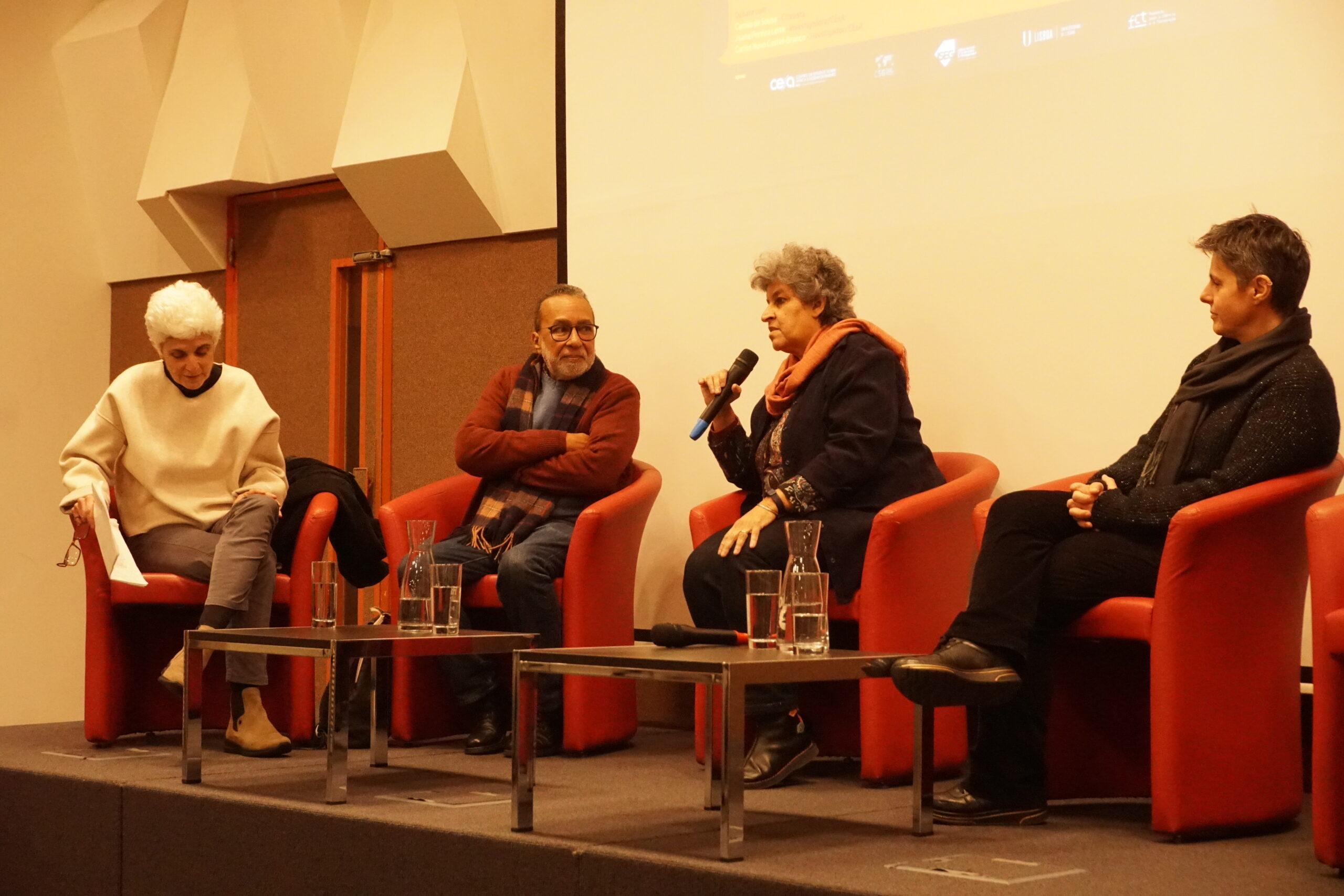
The researcher explained that the sessions are open to the public, but she expects more active participation from the people who experienced and came into contact with the decolonisation process, such as Portuguese and African ex-soldiers and everybody who had some sort of connection with the former colonies.
“There have been a number of projects in Portugal and in Europe that focused precisely on the post-war generations. We have every interest in having younger people discussing these issues, but we don’t want the generations who experienced these situations to be silenced. We believe that we still have to prepare the events, the traumatic and non-traumatic memories, and that they are still based on the contemporary”, said Falconi.
Laboratory of narratives
The expectations of the organisers are that the film club will be a laboratory of narratives, from the collection and construction of an archive of testimonials, where it will also be possible to analyse the impressions revealed from a psychological perspective. “We are very focused on the process. The dream is for it to become an interactive workshop, not just a cinema sample, where people can experiment with what it means to narrate your own experience in relation to these issues”, explained Falconi.
NEVIS
Another goal of the film club is to organise a filmography complete with all the technical information and post it online. This began under the scope of the NEVIS – Written and Visual Narratives of the Post-Colonial Nation (CEsA/FCT, PTDC/CPC-ELT/4939/2012) project, whose website has a preliminary database of films on this subject. The NEVIS project, funded by the FCT and coordinated by CEsA researcher Ana Mafalda Leite, studied cinematographic works in dialogue with literature.
In 2015, to mark the commemoration of the 40 years of independence of the Portuguese ex-colonies and the closure of NEVIS, the project promoted the Colloquium on Writing and Cinema in Portuguese-speaking Countries. The event was a milestone in bringing together renowned Portuguese-speaking film directors and producers: Ângelo Torres (São Tomé), Flora Gomes (Guinea-Bissau), Fernando Vendrell (Portugal), Zezé Gamboa (Angola), Isabel Noronha and Camilo de Sousa (Mozambique) and Leão Lopes (Cape Verde).
“It was very special because it brought all these people together, as there had never been events for getting together and exchanging experiences. After this encounter in 2015, we kept up this idea of creating a cinema project at CEsA and, in the end, we decided to start a film club in an attempt to combine the cinematographic dimension with the narrative dimension”, recalled Falconi.
Regresso a Nacala
The “Cinema and Decolonisation: Mozambique in focus” cycle, despite being the first film club at CEsA, is not the research centre’s first venture into the audiovisual. In 2000, researcher Joana Pereira Leite and director Brigitte Martinez produced the documentary “Regresso a Nacala” (Brigitte Martinez and Joana Pereira Leite, 2001, 75 min), funded by the National Commission for the Commemoration of the Portuguese Discoveries and by the Lisbon Photographic Archive (Lisbon Municipal Council) and supported by ICA/IP – Cinema and Audiovisual Institute and by RTP.
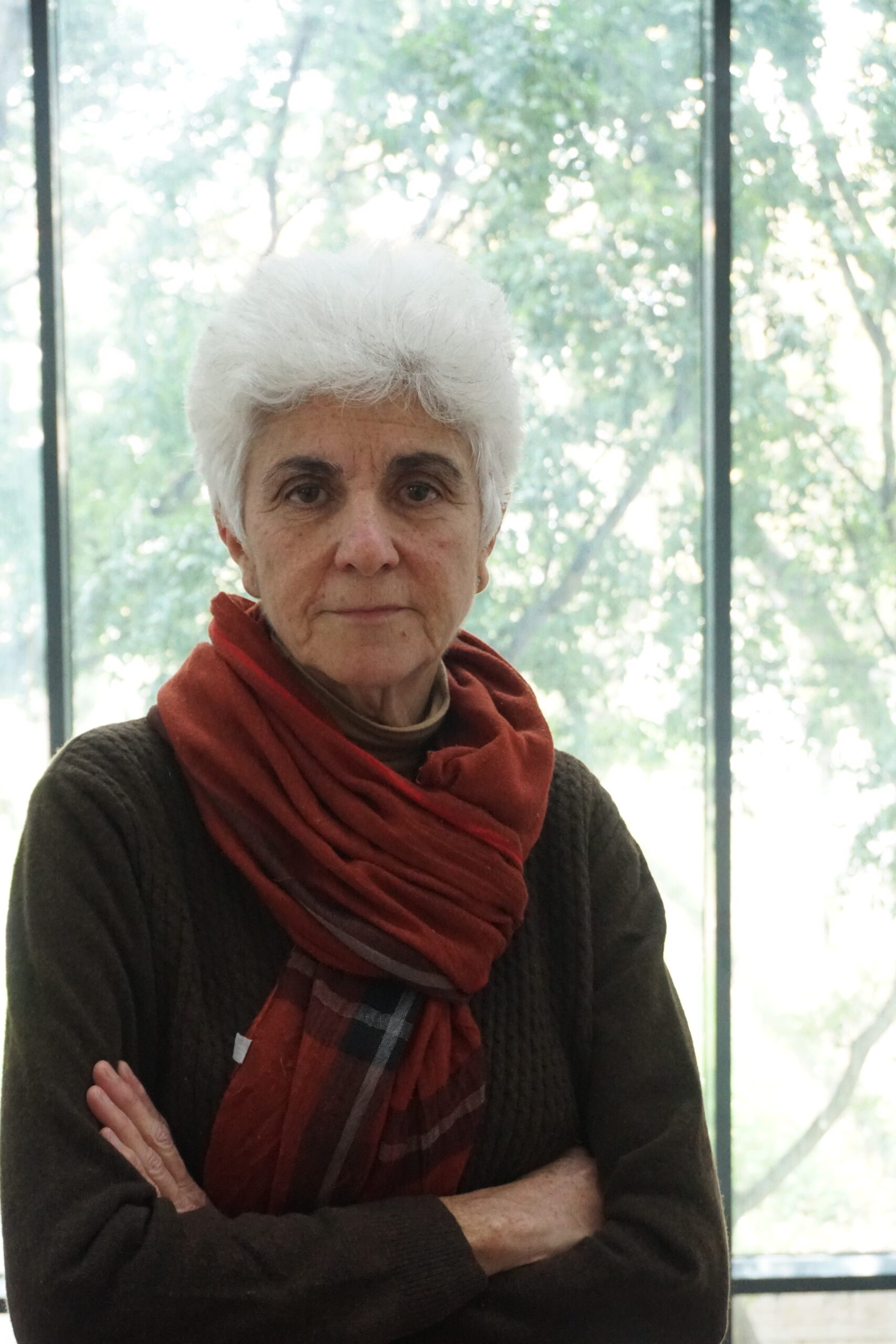
The film tells the story of the return to Nacala, a coastal city in Northern Mozambique, of photos taken over 20 years, between the 1950s and the 1970s, about the daily life of the Islamised fishing communities in the region of the Makua people. All by the former Portuguese settler, José Henriques e Silva. “He was a very sweet man, one of the few Portuguese settlers that had access to the other world and built a strong connection with the locals”, said Pereira Leite.
The documentary looks at the request from Henriques e Silva himself that “if anybody goes back to Nacala, go and look for my friends” to return photos of the Makua people to them, proposing, as the synopsis says, “a journey illuminated by meetings, a balance between the colonial era and the recent post-colonial era”. According to Pereira Leite, the return represented an important milestone for the history “of what Portuguese colonisation was apart from exploitation, with other dimensions, like affection”.
The images show the features of the Portuguese colonial adventure and the 16 years of civil war before the independence of Mozambique. The photos were exhibited in Lisbon in 1983, at Ar.co – Art and Visual Communication Centre, in Paris in 1986, at École des Hautes Études en Sciences Sociales (EHESS), and finally in Brussels in 2000, at the Charleroi Museum. They were also used in the book “Pescadores Macua”, on sale at BLX – Lisbon Library shop.
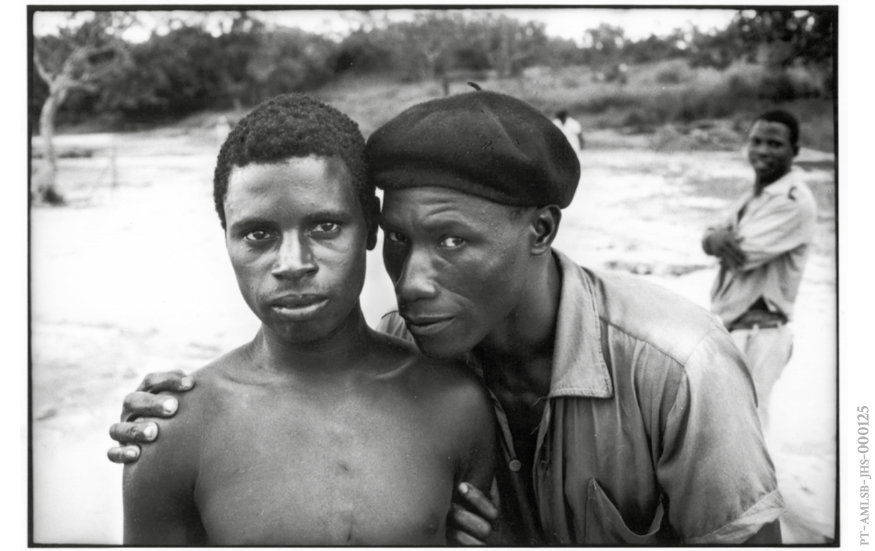
“Basically, he was an anthropologist and photographer of unusual talent. These photographic records of that region are the only ones I know of with that quality and that photographic dimension that took 20 years of contact to construct”, concluded Pereira Leite. The documentary is available online on the CEsA YouTube channel in Portuguese and French (click here to watch it in Portuguese) (click here to watch it in French).
Read/See more:
CEsA launches the film club “Cinema and Descolonisation: Mozambique in focus”
Check the full program for 2023 of the film club “Cinema and Decolonisation: Mozambique in focus”
Colloquium on “Writing and Cinema in Portuguese-speaking Countries” (28 and 29 May 2015)
Playlist on YouTube: “Regresso a Nacala”
Playlist on YouTube: “Retour à Nacala”
Text published in issue n. 1 of CEsA Digital Magazine. Authorship: Marianna Rios/Communication CEsA. Editing: Sónia Frias/CEsA Board and Filipe Batista/Communication CEsA. Translation: Inês Hugon. Design: Felipe Vaz.





